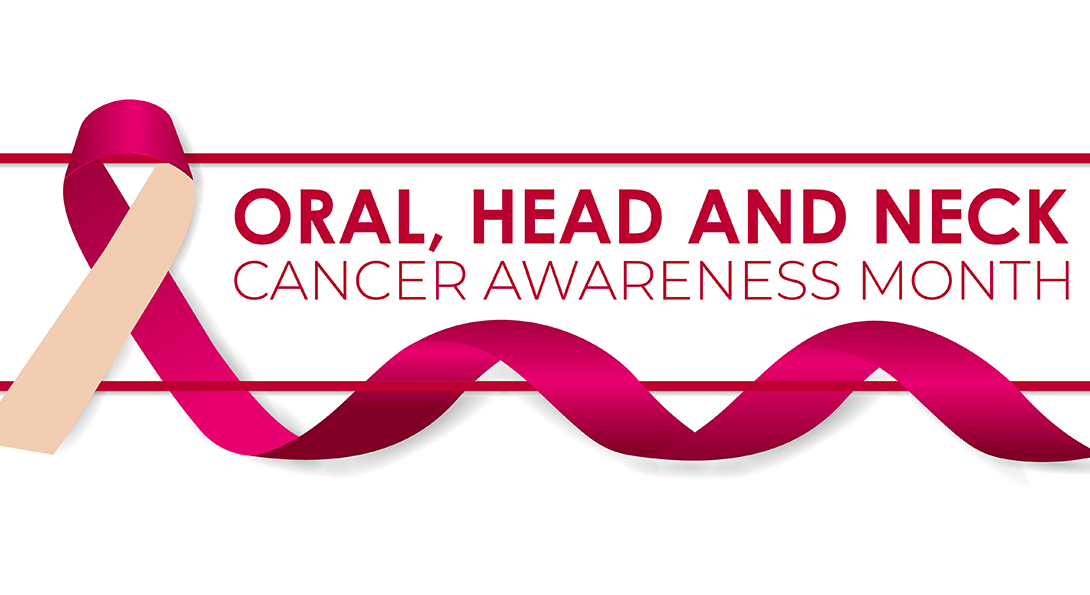UIC College of Dentistry Shines the Spotlight on Oral Cancer

April is Oral Cancer Awareness Month. The month serves as a stark reminder of a disease that should never happen. Its leading causes -- the use of tobacco primarily and, in fewer cases, excessive alcohol consumption -- are totally preventable.
Yet each year, more than 30,000 cases of oral cancer are diagnosed in the United States and 8,000 people die of this disease, according to the Centers for Disease Control and Prevention. This year alone, the American Cancer Society estimates more than 58,000 people will be diagnosed with oral or oropharyngeal cancer, which is often associated with Human papillomavirus.
The good news: There are ways to reduce your risk of contracting oral cancer, say the experts at The Oral Medicine & Facial Pain Clinic at the University of Illinois Chicago College of Dentistry.
Prevention, protection and education are the goals of the UIC team during Oral Cancer Awareness Month and year-round. The observance emphasizes the importance of making oral cancer screenings part of the dental exam routine.
The silent threat of oral cancer
Oral cancer can strike anyone, regardless of age or lifestyle. It includes cancers of the mouth, tongue, lips, throat and even salivary glands. Often, it’s symptoms go unnoticed.
But it’s important to pay attention to the risk factors.
You are three times more likely to get oral cancer if you drink or smoke or use tobacco, the UIC experts say. And, you’re 30 times more likely to be diagnosed with oral cancer if you have HPV, or Human Papillomavirus. HPV infection is a viral infection that commonly causes skin or mucous membrane growths (warts). This infection is a sexually transmitted disease (STD), and this exposure is a reason young females and males are now recommended to receive a vaccination to reduce the risk for cancers later in life as they become sexually active. There are different types of the virus and some are high and some are low risk types linked to oral cancer risk/
Oral cancer is twice in common in men. This is because men are more likely to use tobacco and alcohol over long periods of time and in large enough quantities to cause these cancers.
Early Detection is Crucial
The UIC College of Dentistry provides a broad range of diagnosis and non-surgical treatment for oral cancer and the complications of medical therapies including cancer treatments (i.e. chemotherapy and radiation.)
Dr. Beth Miloro, director of the oral medicine and facial pain clinic and clinical assistant professor of oral medicine and diagnostic services, along with Dr. Joel Schwartz, professor of oral maxillofacial pathology and oral medicine and diagnostic services, stress the importance of regular screenings. Please visit our YouTube page to watch, Oral Medicine & Early Diagnosis to learn more.
The first step is identifying the type of head and neck oral cancers. These include:
- Oral Cavity: tongue, gums, floor of mouth
- Throat or oropharyngeal, often related to HPV
- Cancer also arises from the salivary glands, lymph nodes (lymphoma) or bone/soft tissues (sarcoma)
One of the real dangers of this cancer is that, in its early stages, it can go unnoticed. It can be painless, and few physical changes may be obvious.
One of the real dangers of this cancer is that, in its early stages, it can go unnoticed. It can be painless, and few physical changes may be obvious. But diagnosing oral cancer starts with paying attention to possible symptoms:
- Lumps, bumps, ulcers, infections that do not go away for more than two weeks need to be examined
- A lip or mouth sore that doesn’t go away
- Jaw pain or swelling
- Continuous sore throat
- Problems with swallowing and eating
- A white or red patch on the side or base of the tongue, floor of the mouth, oropharynx-tonsil area, gums or surrounding a tooth
- Bleeding sores
Treatments
The UIC dentistry team takes a multi-disciplinary approach to cancer treatment, offering many different options. Treatments may include surgery to remove the tumor and surrounding tissue, radiation therapy, chemotherapy, immunotherapy or some combination.
The UIC College of Dentistry offers services in comprehensive, urgent and specialty care. To schedule an appointment, please visit: https://dentistry.uic.edu/patients/request-an-appointment/.